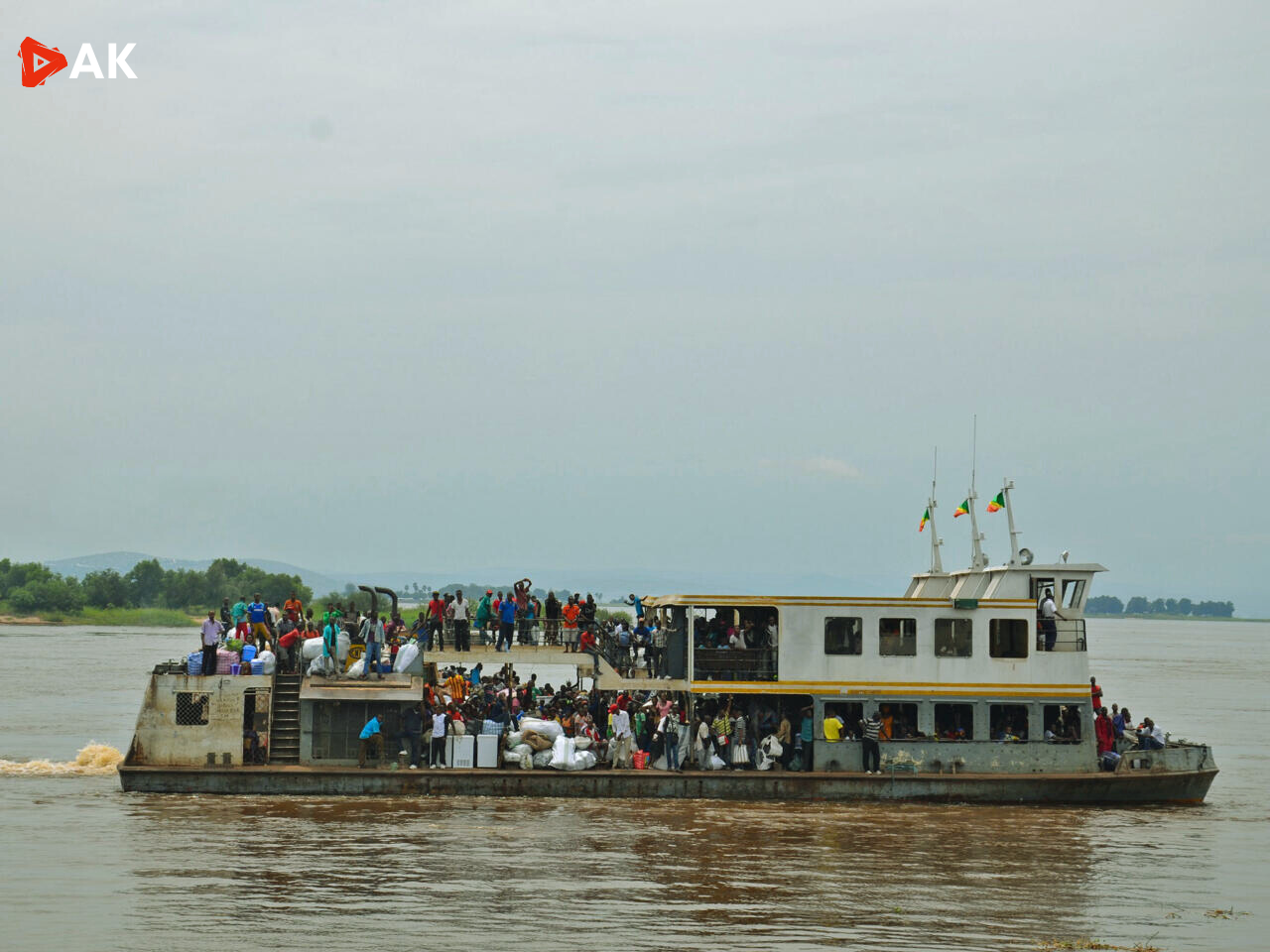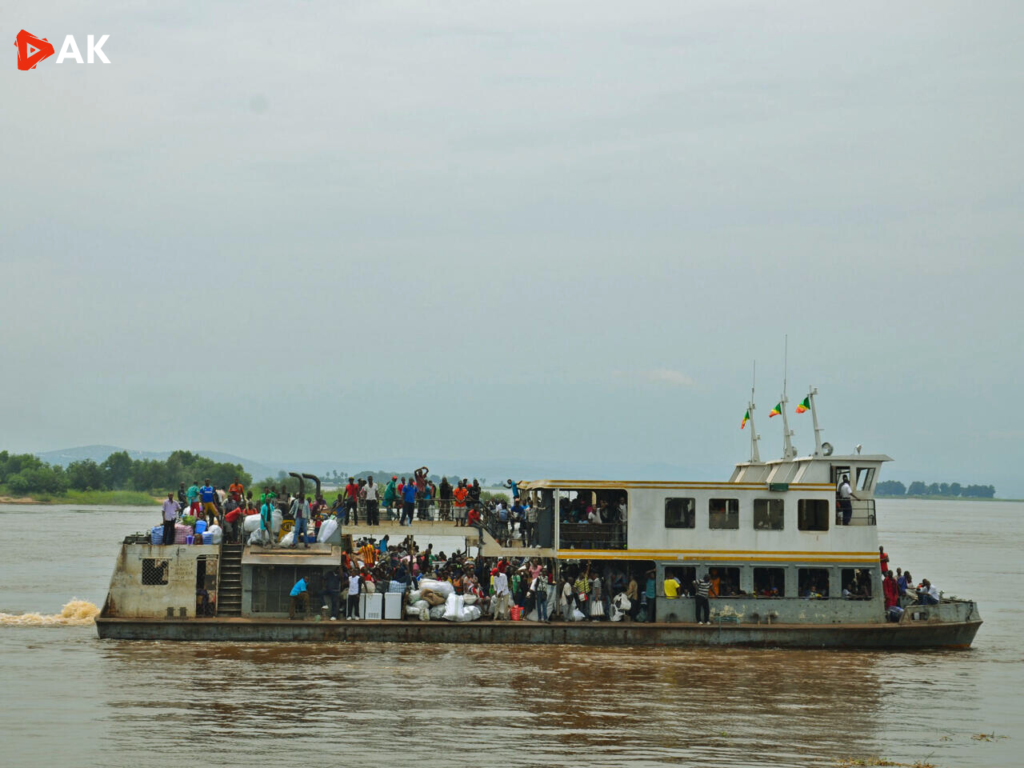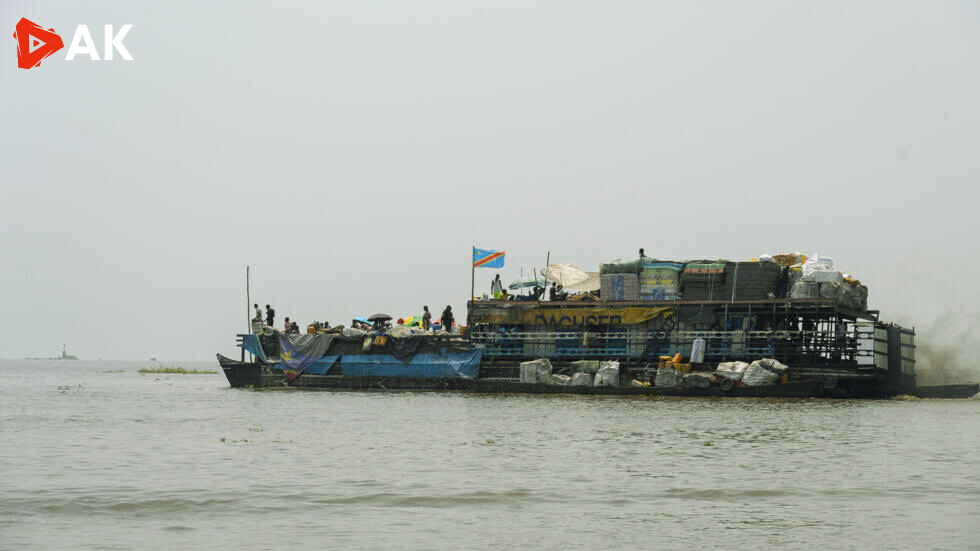
A tragic boat accident occurred on the night of Saturday, August 18th, on the Lukenie River in the Kutu territory of Maï-Ndombe province, located in southwestern Democratic Republic of Congo. A boat, known as a baleinière, carrying approximately 300 passengers and goods, capsized, leaving over a hundred people missing and only about twenty bodies recovered so far.
Context of the Incident
The vessel departed from Amo, a locality situated over 600 kilometers east of Kinshasa, heading towards Nioki. In addition to passengers, the baleinière was loaded with food supplies, many passengers being precariously positioned on the boat’s roof. Despite the prohibition on night navigation, the operator continued past dusk. While attempting to maneuver near a location known as “île Maurice,” a fishing village, the boat struck submerged logs along the riverbank, which led to the vessel capsizing.
Jacques Nzenza, the administrator of Kutu territory, attributed the accident partly to the low water season, which complicates navigation. Rescue efforts to find the missing bodies are ongoing, but conditions remain challenging due to the lack of telecommunication coverage in this remote region.
Situation Analysis
This incident exposes several systemic issues in the management of river transportation in the DRC:
- Disregard for Navigation Regulations: The ban on night navigation is often flouted, frequently due to corruption among port authorities and security personnel. Such practices endanger the lives of passengers, as tragically demonstrated by this incident.
- Overloading of Vessels: Baleinières are frequently overloaded with passengers and goods, in violation of safety standards. The lack of stringent oversight allows these dangerous practices to persist.
- Insufficient Infrastructure and Monitoring: The government struggles to ensure effective monitoring of navigable waterways, mainly due to resource constraints and the isolation of certain regions.
Analyson Kongo’s Recommendations
In light of this tragedy, we propose the following recommendations to prevent such disasters in the future:
- Strengthen Enforcement of Navigation Laws: The government must ensure strict adherence to the night navigation ban. Violators should face severe penalties, and corruption within port and security services must be eradicated.
- Implement Rigorous Safety Inspections: Regular and rigorous inspections of vessels, including checks on load capacity and safety conditions, should be mandatory. This could include pre-departure inspections to ensure boats are not overloaded and meet safety standards.
- Improve Communication Infrastructure: The government should invest in better communication infrastructure in remote areas to facilitate emergency response and rescue operations.
- Training and Awareness Programs: Boat operators and passengers should receive better training and awareness about the risks of navigating during the low water season and at night. Public education campaigns should be conducted to inform people about the dangers of these practices.
- Increase Resources for Rescue Operations: It is crucial to increase resources allocated to rescue and search operations in high-risk areas. Specialized and well-equipped teams should be deployed to respond swiftly in case of emergencies.
Conclusion
The boat tragedy in Maï-Ndombe is a preventable disaster that underscores the serious shortcomings in river transport management in the DRC. Analyson Kongo urges the government to take immediate and effective measures to prevent future incidents and ensure the safety of citizens on the country’s waterways.
Signed, Analyson Kongo





